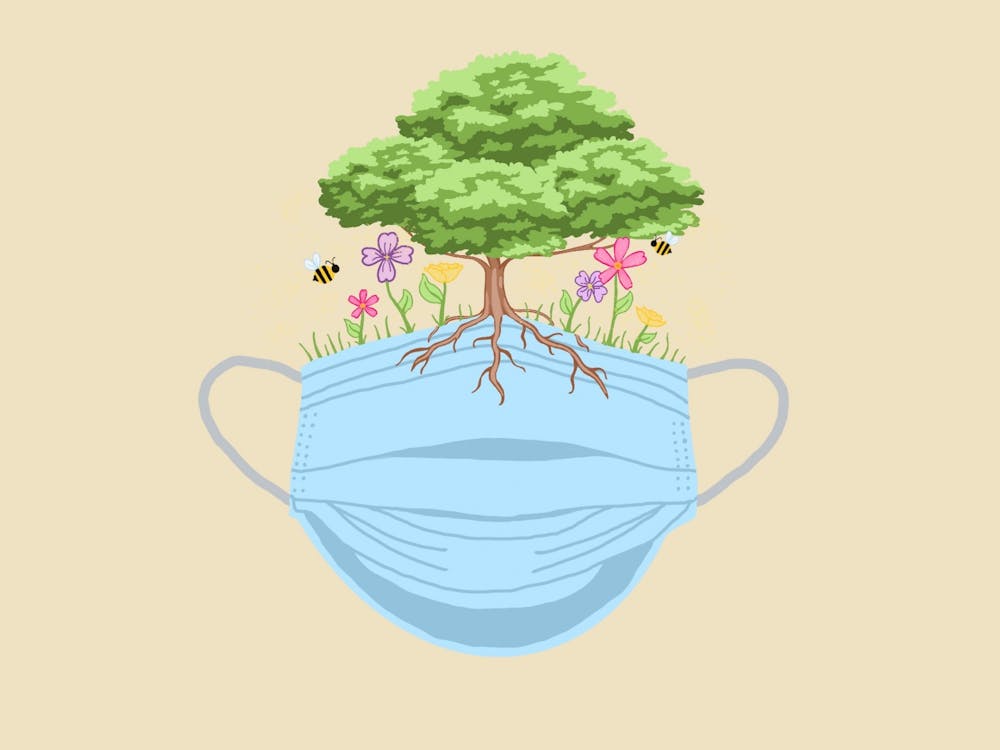Allergy season causes students with mild to severe allergies to sneeze, cough, have trouble breathing and suffer a multitude of other unique symptoms. Allergy symptoms often coincide with COVID-19 symptoms — which causes a blurred line between the two very different conditions.
Many COVID-19 cases are coupled with a fever, body aches, loss of taste or smell, extreme fatigue or all of the above — symptoms that, for the most part, do not relate to allergies. For kids and teens, these COVID-19 symptoms are often not experienced, which makes it imperative for these groups to pay extra close attention to their allergies since they have less distinctive signs between the allergies and COVID-19 than other patients.
Dr. Michael Nelson, allergy specialist at U.Va Hospital, believes that it is optimal to prevent one’s allergies in the early stages.
“We try to have patients be honest with their symptoms, and I think it has resulted in them seeking care and trying to get treatment earlier rather than later,” Nelson said. “[This happens] particularly since our patients have been more vigilant about controlling neurology symptoms, because they don't want to be perceived in public as having a COVID-19 infection.”
There are several preventative measures one can take to diminish the effects of allergies. Over-the-counter medications such as Zyrtec, Allegra and Claritin block histamine receptors, the primary triggers of seasonal allergies. Steroid nasal sprays, such as Flonase, are also useful to clear out congestion.
The U.Va. Asthma and Allergy clinic is another resource students can utilize to discuss further plans of action to combat their allergies when over the counter medications do not provide enough relief.
Nelson said some allergies look more similar to the COVID-19 virus than others.
“There's a lot of overlapping symptoms between COVID-19 acute infection, allergic rhinitis or hay fever,” Nelson said. “Some of these are things like nasal congestion, runny nose, coughing and shortness of breath. At the same time, fever, whole body aches, loss of smell are COVID-19-dominant symptoms. [They] are seen much more commonly in COVID-19 than in patients with allergic rhinitis, which might have more sneezing. It can be tough to tell the two apart.”
For students who have bad allergies — especially during their first year on Grounds — it is easy to confuse allergies and COVID-19. Allergen triggers and the onset date of allergies can shift in different regions. If students have never been exposed to some of the plant species native to Virginia and the Southeastern spring weather patterns, they can easily confuse their runny nose with a COVID-19 infection.
First-year College student Elizabeth Rogers said this environmental shift significantly altered her allergies.
“Usually in my hometown of New Orleans, my allergies start very early in the spring and feel different than how I have experienced allergies in Charlottesville,” Rogers said. “This definitely surprised me and made me consider if my atypical allergy symptoms were possibly COVID-19.”
Once March begins in Charlottesville, trees are in full bloom and pollen is spread. Tree species, such as the oak, maple and river birch, give off a high amount of pollen which triggers those with seasonal allergies.
In the North, allergy season does not start until April, and in the Deep South, allergy season is almost year-round, which causes some confusion for out-of-state University students who are unfamiliar with Virginia allergies.
In light of the pandemic, people are much more inclined to treat allergies. Dr. Costi Sifri, doctor in the infectious diseases division at U.Va Hospital, said the pandemic has led society to have a heightened attention to the health of themselves and the people around them.
“If we are sneezing or coughing, we feel like a negative attention is brought to us and with COVID-19 still being present in society, the last thing you want is onlookers to assume you are sick with the virus, '' Sifri said.
According to Sifri, being courteous to those around us during allergy season is very important. This can look like regularly washing hands and covering mouths and noses when coughing or sneezing.
Sometimes, those with allergies want to take extra precautions to make sure that they are not confusing their allergies with a potentially infectious disease. One method is continuing to wear a mask indoors — which are also proven to help those with allergies limit their exposure to pollen.
Dr. Jeffrey Wilson, an allergy specialist at U.Va Health, highlighted masks as an effective allergy solution.
“Most pollen grains are going to be a fair bit bigger than the virus or the viral particles, which is good because the bigger the particle size the more effective the mask will be in providing a barrier and keeping it away from you,” Wilson said.
While masks are optional at the University as of March 28 in classes, University buildings, dining halls and sports facilities, masking is still an option students have to protect themselves and others from COVID-19.
Ultimately, Dr. Wilson is encouraged that students have been so diligent with COVID-19 protocol this year and applauded students for taking care of themselves and their health amidst the pandemic.
“Overall, U.Va. students have been very on top of their health this year,” Wilson said. “We have seen students visit the clinic more often and follow COVID protocols with ease because it has become a part of their everyday life.”







